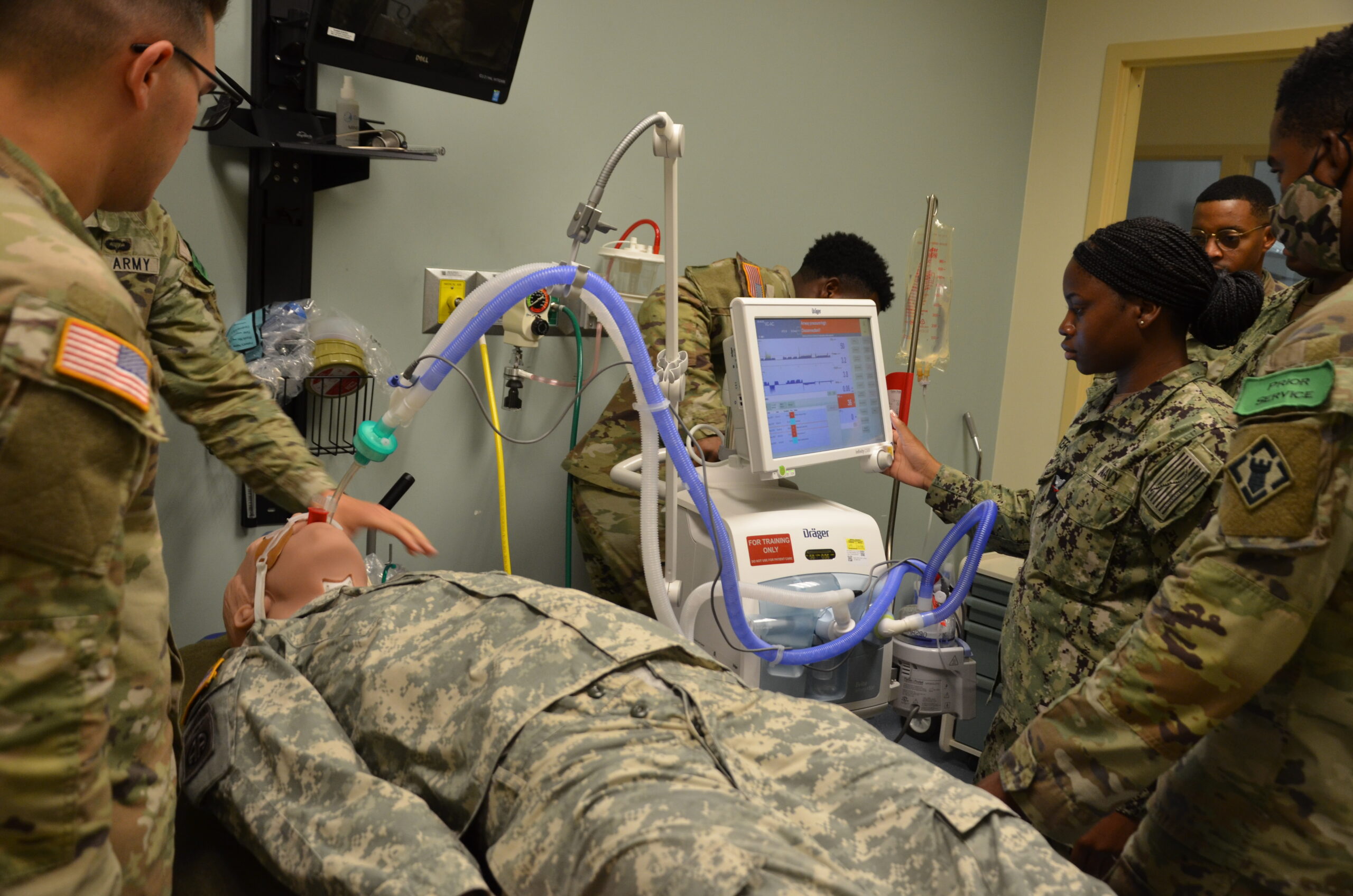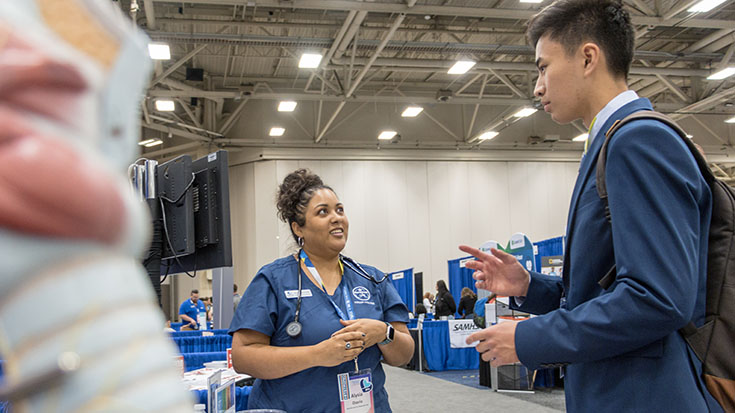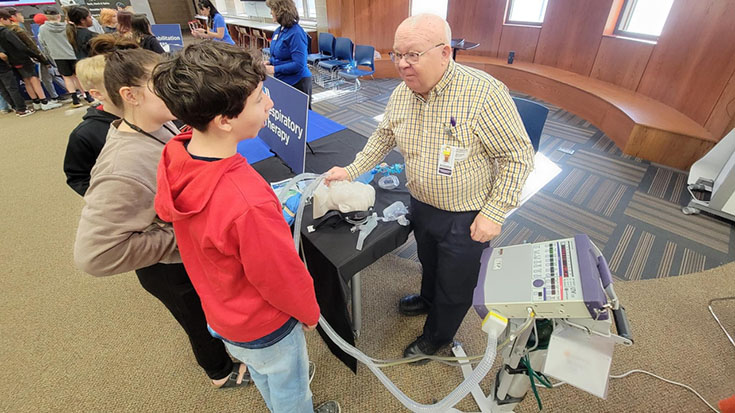
Whether you’re just finishing up your RT program or you’ve been out of school for a while and are going back for your RRT, studying for your RT boards can be a stressful experience. How can you prepare for these exams without feeling frantic in the process?
According to researchers from Tufts University, taking practice tests is your best bet. In a study involving 120 students who were subjected to a series of learning situations and then either studied the material using practice tests or traditional methods they found those who used practice tests fared better on the final test — even when they were exposed to a stress-invoking situation just prior to the test.
That would come as no surprise to RT educators. In an informal poll on the AARC’s Education Section Discussion List, we found overwhelming support for the use of practice tests when preparing for the CRT and RRT exams.
Confidence builder
Kyle C. Mahan, MSM, RRT, from Jefferson Community and Technical College in Louisville, KY, believes practice tests help his students get past the angst that’s inherent in the exam process. “I find that many lack self-confidence and do not feel equipped to tackle the boards. When they are provided practice and exit exams and see that they are actually prepared and capable, it boosts their confidence.”
“I have observed my students say they are nervous and also say they do not know enough,” agrees Andrea Pifher, MHS, RRT, RRT-ACCS, from Columbus State Community College in Mechanicsburg, OH. “Allowing them to take a practice exam gives me the opportunity to help them identify their strengths and weaknesses.”
Chris Becker, MSE, RRT, says his program at Madison College in Madison, WI, requires all students to pass the TMC twice during their last semester, the first time at the CRT cut score and the second time at the RRT cut score. Students who don’t pass get two chances to retake the exam.
“This gives weaker students more exposure to exam questions,” he said. “We also work with them on test-taking strategies and identifying what content they need to improve on.”
Not an option
At HACC in Harrisburg, PA, practice tests are not an option: they account for 50 percent of the student’s course grade for their final clinical course. “This has helped motivate students to actually study and not blow off the practice exams,” said Curtis Aumiller, MS, MBA, RRT, RRT-NPS, RPFT.
Educators in the Indiana Respiratory Therapy Education Consortium use practice tests in the final semester too, the first unannounced. “This gives students a ‘wake up’ call, provides them with feedback about areas in which they are weak, and reinforces the fact that they need to study for NBRC examinations,” said Janice Johnson, MS, RRT, RRT-NPS, AE-C. “Our aim is to decrease test anxiety and build confidence. We have very good results on board examinations, so it must be working.”
Pamela Lindemann, MA, RRT, from Virginia College in Birmingham, AL, has her students take practice tests and then write the rationale for the correct answer for all the answers they got wrong. “This helps them to retain the information better and, although it is time-consuming, they seem to be doing better on the actual tests.”
Practice tests also help to ensure students are exposed to material that might be tested but was not actually covered in their program. “It is not impossible that faculty could fail to teach some important content,” said James Hulse, PhD, RRT, RRT-NPS, RPFT, from the Oregon Institute of Technology in Klamath Falls. “They may have covered the material but not important details that are actually tested. The practice examinations themselves can help the students and faculty remedy this lack.”
Quality counts
Of course, not all RT practice tests are created equal, and that’s an important point, said Ann Flint, EdD, RRT, from Jackson College in Jackson, MI. She recommends using the actual NBRC materials, or tests from reputable firms that test their tests on real RTs. She also tells her students to keep taking the tests until they get all the answers right. “That steady improvement boosts confidence and reduces test anxiety that can torpedo success.”
Barry Ranson, MS, RRT-NPS, RRT-ACCS, cautions that students need to look at these tests as a way to learn essential exam taking skills rather than for rote memorization. “Students who simply take practice tests in an attempt to memorize the correct answers to questions that they hope will be similar to board questions don’t seem to perform as well,” said Ranson, an educator from Rutgers in Stratford, NJ.
Pat Vaughn, MEd, RRT, from Francis Tuttle Technology Center in Oklahoma City, OK, stresses that fact to her students as well. “Some students feel compelled to throw themselves at the exams over and over again thinking that by memorizing the test questions, this will translate to success on the real board exams,” she said. ”Despite our repeated cries to not do this, there are usually one or two students who do not listen and learn the hard way!”
Despite their value, practice tests alone won’t get the job done, agrees Nancy Colletti, PhD, RRT, from Kettering College in Kettering, OH. Students have to study first. She likens it to learning to play a musical instrument. “First you learn how to read the music and how to play the notes on your instrument, then you need to practice so it sounds like music!”
For Ellen Becker, PhD, RRT, RRT-NPS, FAARC, from Rush University in Chicago, IL, practice tests are a great reality check for students. “Wisdom is knowing what you do not know. Looking at the results of practice exams helps you identify content that you do not know well,” she said. “Thus, they are extremely helpful for identifying content that requires further study.”
If you’re getting ready to take your RT board exams and are looking for a way to prep, consider the AARC’s Exam Prep program. The course includes the TMC and CSE exams from the NBRC, along with video-based instruction that is customized for each enrollee based on his or her performance on the practice exams. Enrollees then take an NBRC self-assessment post-test to gauge the improvement in their performance.
Email newsroom@aarc.org with questions or comments, we’d love to hear from you.















